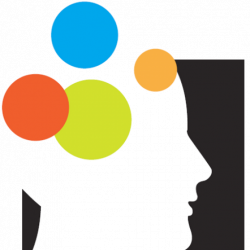By: Maheep Chalwa, Muthaira Abid

MA: What are your preferred pronouns?
A: She/her/hers
MA: What did you study at UBC and when did you complete your degree?
A: I majored in Psychology with a minor in Law and Society. I just graduated this May.
MA: Could you tell us where are you from?
A: I was born in Malaysia and moved to India when I was 8 so I guess I identify with both cultures.
MA: Could you tell us one fun fact about yourself?
A: I don’t have a last name! Many people find that pretty cool so that is my go-to answer for this question. I was actually named Anjali by my elder sister after she watched the Bollywood movie – Kuch Kuch Hota Hai and fell in love with the character Anjali.
MC: Could you give us a brief outline on your research? What was your research project?
A: My project was a social cognitive psychology experiment. It has never been done before in terms of research. It was about understanding how individuals interpret a social situation that they themselves are not physically a part of. So, for example, if you are in a bus, and you look outside the window and see two individuals, would you be able to identify if they were doing an action together or not? We wanted to understand if knowing the context played a role in action perception and understanding social situations.
In our online experiment, we divided participants into two conditions: relevant and irrelevant. The relevant/irrelevant sentence was our independent variable. The participants were then asked to rate how collaborative they thought the actions were on a scale from 1 to 5, which was our dependent variable.
The pre-training stage was similar for both conditions – the participants were shown videos of two white faceless figures against a black background. These figures were doing something together (collaborative action) or separately (non-collaborative action). Participants were asked to rate how collaborative they thought the actions were on a scale from 1 to 5.
In the training stage, participants were given relevant context in the form of a statement describing the action in a similar video, for example, “the man is carrying a heavy object,” whilst in the irrelevant condition, participants were given irrelevant context on the action they were viewing, for example “the man in the video is a student at UBC.” This section was primarily a precautionary measure for the post-training stage- we wanted to see if the participants were actually paying attention, so we asked them probe questions on what they saw in each video. Any participant who scored less than 70% on the probe questions was eliminated from the data in order to ensure the reliability of our data.
The post-training stage in the experiment was a way to understand the effects of the training in the two different conditions (relevant and irrelevant). It was hypothesized that the participants in the relevant training condition would have higher ratings for collaborative actions and lower ratings for non-collaborative actions when compared to the participants in the irrelevant training condition.
MC: What was the conclusion of your research?
A:The final results showed that although participants were able to decipher the situational context in both conditions, the ratings for the relevant condition were higher. This means that having a sentence related to the context enhanced the participants’ ability to understand the social situation and relevant context enhanced the participants’ action perception.
MC: So you were able to find support for your hypothesis? That’s good. Congratulations on that! What sparked your interest in your research topic and how did you build your hypothesis?
A: Initially I was very confused! I was thinking of conducting research related to forensic or clinical psychology. However, my supervisor wasn’t that familiar with it as she was a part of the vision lab. Her interest lied more with social and vision projects. She introduced me to the project and I was quite fascinated! My supervisor and I always had a little friendly competition going on because we both predicted contrary results! Our final hypothesis was ‘while individuals are able to make sense of social situations without the presence of context and contextual cues, the presence of context greatly enhances their perception and understanding of social situations.’
MC: Is there anyone in the field who has inspired you?
A: Dr. Benjamin Cheung. His experiences motivated me to join a research lab in the first place. However, if we are talking about an inspiration specific to this project, it would be my supervisor at the lab.
MA: What has been your favourite part of the process?
A: I guess if it was in-person, my favorite part would have been interacting with participants, but since it was online, there wasn’t much I could do myself. I’d say the best part was writing the paper. Even though it was a long process, it was kind of fun! I think this was because my principal investigator and supervisor were always motivating me.
MC: What was your most surprising observation from your study?
A: During the pre-training stage, the ratings were very similar for the two conditions. They were only differentiated by one point.
MC: What did you do with your data and conclusion? How did you present it?
A: I wrote a research paper which I am hoping to publish. I have applied to the Undergraduate Journal of Psychology at UC Berkeley. I also presented my research on a poster at PURC (Psychology Undergraduate Research Conference).
MA: How do you see the results of your study being applied in the real world?
A: Hopefully the study will open up more opportunities in the field of social cognitive psychology because it’s something that has not been done before in terms of action perception. We also hope for the study to be of aid to people with disabilities, such as children with Autism. These children struggle in social situations. We are hoping that this research paves the way for additional research and interventions for children with autism, as well as people who suffer from the symptoms of a damaged prefrontal cortex.
MA: If you could do your study again, what would you do differently and why?
A: I would start the study earlier (and not procrastinate) as I would have had the opportunity to conduct some of the studies in person.
MA: How has doing directed studies helped you grow, both personally and professionally?
A: Professionally, this opportunity has given me additional experience in writing papers and conducting Psychology-related research – something I hope to use in the future. I was also able to brush up on my statistics and data-analysis software knowledge. Personally, I have always believed in hard work. I think this experience helped me prove to myself that hard-work pays off.
MC: What course(s) do you think were most helpful in gaining background knowledge about your research topic?
A: Social Psychology to an extent but since this was a relatively new research, there was not much existing information that particularly stood out in any course to help me with my current research.
MA: Tell us about how you stay organised and manage your time while doing a directed studies project.
A: All nighters and caffeine!
MA: How do you network within the psychology community, and where have you made your most valuable connections?
A: I have made some valuable connections on Linkedin over the past few years. Outside the Psychology community, I made connections within the Indian Students’ Association- UBC UTSAV.
MA: What have you been up to since you graduated?
A: I’m currently working as a behavior interventionist at Joy BCI. I am working with children with autism. Some of my main duties include going to each client (child’s) house and running their programs (and aiming to meet their goals), and preparing material for each child prior to the sessions, based on existing or new programs. The programs differ according to each child’s level. Some examples would include: see-say actions, spontaneous eye contact, see-say nouns etc. On the side, I’m also tutoring UBC students in statistics in sociology.
MC: What do you see yourself doing in 10 years time?
A: I’m interested in clinical and forensic psychology so hopefully something in one of those fields. I’m working in the field of Developmental Psychology right now and while it is interesting, it is not something I see myself doing in the long term. I am unsure if I want to pursue a PhD just yet but that is something I have on my mind. I am also interested in business and design so maybe something in those fields. Whatever I do, I would like to always keep Psychology in my life.

